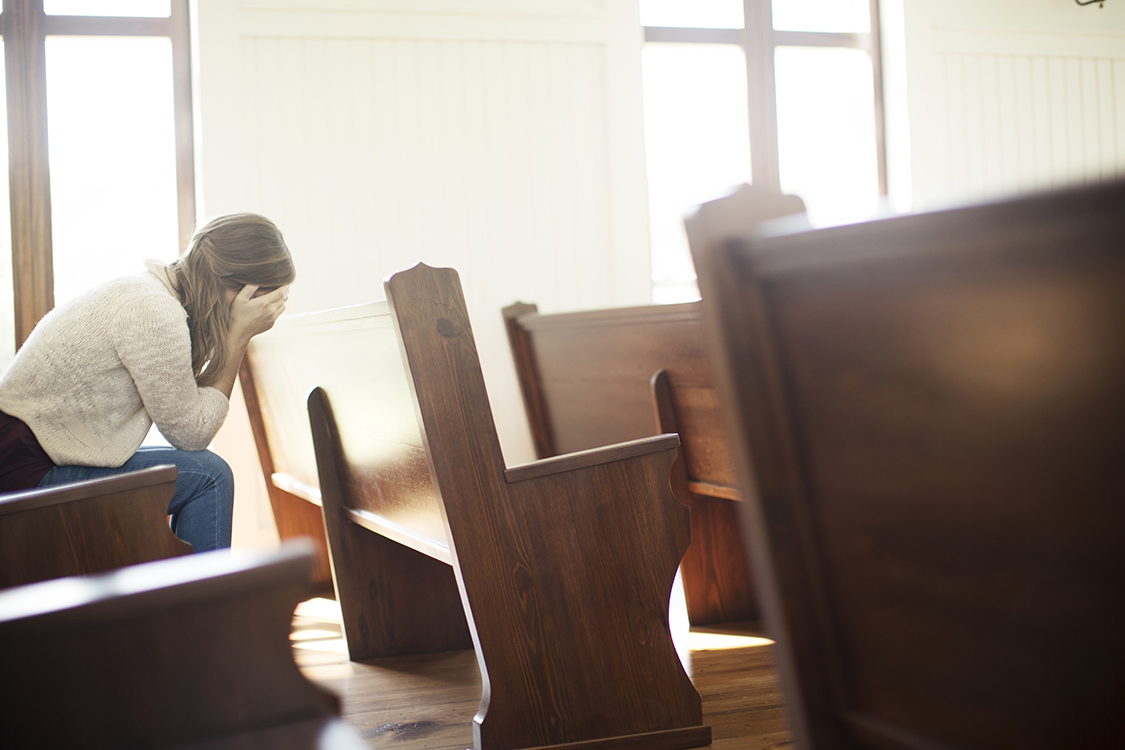
Even with a solid belief system, a person’s grief can be long and intense.
Sandy: I am a Christian, and I was surprised that my grief was so long-lasting and strong. I knew where Mother was, I knew she’d gone to heaven, I knew she was in a better place, and I guess I felt that my faith would get me through. Surprisingly, most of my grief lasted a good two years after Mother passed away.
Carla: Been in pain for months and months and months. It’s amazing to me just how unrelenting the pain is. Forty-eight years of smile lines were replaced in one year of crying.
H. Norman Wright: Eight years after Matthew died, we had a young man working in the yard…. My wife looked at me, and the tears were coming down her face, and Joyce said, “He looks just like Matthew.” It brought back that sense of loss once again, and we just held one another and wept.
Donna: My husband had been sick for several years, so I thought I had already grieved. But my intense grief came about three months after he passed away. I remember calling my sister, hysterical, just screaming in the phone, “He’s not coming back. He’s not coming back.”
“These experiences,” says H. Norman Wright, counselor and traumatologist, “they’re very normal; it’s just one of the things we fail to talk about.”1
Lack of awareness can result in greater hurt
Grief lasts longer than one would expect. Even a mature believer has to walk through the process of grief in order to heal. The problem is, people—both those grieving and those who’ve not grieved a death—aren’t fully aware of how long and consuming the grief process can be.
Therefore, a grieving person can feel he is doing something wrong when he still has strong emotions and pain for several months, and even years, after the death (and as a result, he’ll often pretend he is doing better than he is).
A nongrieving friend who does not understand the time frame often tries to “help” him move past the pain too quickly, and this can cause even more hurt to the griever.
As a pastor, you don’t want your church people to be hurt, and you don’t want your people to instigate the hurt. Communicating the points in this article will help promote honest, healthy grieving and greater compassion.
H. Norman Wright gives an assessment of the length of the grief process:
- Grieving moves very, very slow at first, during the first or second year. In fact, sometimes the second year is more difficult because the numbness of the first year has worn off. You go through this pain, but then you start taking steps forward. The grief shrinks a little, shrinks a little more, then it expands. You gradually move forward, and this doesn’t mean that you ever (especially in the death of a child) completely get over it.2
Why does the grief process take so long?
A person’s belief system and the choices he makes during the grief process will certainly shape his grief and can even result in his getting “stuck” in an unhealthy place. But other factors independent of a person’s beliefs or personal choices also influence the length of a person’s grief. Every person in grief will have to face and process these factors, which naturally occur over a period of time after the death.
Consider these three factors in understanding why godly people can, and will, experience extended seasons of grief:
Firsts
After a death, a grieving person faces innumerable “firsts”: experiences he has to go through for the first time without his deceased loved one. “Almost everything you do after the death of a loved one, you’re going to do for the first time,” explains Dr. Robert DeVries, professor emeritus at Calvin Theological Seminary. “Those firsts represent a constant reminder that your loved one is no longer with you.”3
In the initial days after the death, the firsts are almost constant: first time sleeping at home without that person, first time waking up, first time eating breakfast. Other firsts continue in the weeks, months, and even years after: first time going to the grocery store, first time walking into church, first time ordering a milkshake alone, first time attending a movie without that person. Every place the grieving person has been to with his loved one will have a “first” associated with it.
Each holiday without that person is also a first, and these firsts can be highly emotional. After the death of his mother, Jeffery shares, “I don’t think I went to church on Mother’s Day for several years. Eventually, maybe after the third year, I was able to go to church for a Mother’s Day service and actually sit through it.”
Associations with significant events
Significant events that occurred near the time of the death will impact the length of the grief process—as people continue to associate that event with the death. The event could be something that occurred prior to or after the death.
Brad Hambrick, pastor of counseling at The Summit Church in Durham, NC, explains three different ways people associate their loss with events that were going on at the same time:
Through regret: “If only Grandma had lived two weeks longer, then she would have made it to the wedding.” There is this permanent regret memory attachment to the wedding and the loss of Grandma.
Through association: “We went to the beach, and that was the last thing we did together. I don’t know that I’ll ever go to the beach the same way again.”
Through guilt: “Right around the time I lost this person, I also fudged a little on my taxes.”4
Those events now have a certain meaning attached to them, and as reminders of the events recur in years to come, a person will carry that meaning with him.
Secondary losses
Being aware of secondary losses will also help your congregation have a fuller understanding of the length of the grief process. H. Norman Wright explains that “in the death of a spouse, people will say they lost their husband or their wife. That is a primary loss. But there is a whole list of secondary losses: loss of confidant, an errand runner, somebody who took the trash out, somebody who took care of the bills. There are usually about twenty to thirty secondary losses.”5
Instead of grieving one loss, a person in grief has to face and grieve many, many losses. These losses are usually revealed over time as the griever faces new experiences that the deceased person typically handled or was there for. Jeannine, who worked a demanding full-time job, quickly realized some of her secondary losses after her husband’s death: “He would balance our checkbook. He cooked for me. He would fill my tank up with gas.”
Consider also these examples:
A father who lost his wife four years ago has a preteen daughter who wants to attend her first dance. She would like to find “just the right dress” and have her hair curled. He will grieve the loss of having that intimate female influence in his daughter’s life as she enters her teen years.
A grieving wife’s car breaks down two years after the death, and she has to make the decision about purchasing a new vehicle. This was her husband’s domain. She will grieve the loss of having someone knowledgeable at home to guide the decision-making.
Counselor Sabrina D. Black shares more examples of secondary losses. “It’s also the death of the dream, the death of plans and a future together. It’s the loss of companionship. It’s the loss of various relationships [shared] together. It’s even the loss of status and title. These are the secondary losses that people experience that others may not think about.”6
Conclusion
The message of “this is normal; this is not wrong” brings enormous comfort to a grieving person who is worried that he’s not grieving “correctly” or exhibiting enough faith. And then to have brothers and sisters in Christ come alongside with a degree of understanding of the length of the grief process serves to strengthen the bond of fellowship.
How will you communicate with your people the reasons grief lasts so long and the benefits of that awareness?
- Church Initiative, GriefShare interview with H. Norman Wright, June 2013.
- Ibid.
- Church Initiative, GriefShare interview with Dr. Robert DeVries, December 2005.
- Church Initiative, GriefShare interview with Brad Hambrick, March 2013.
- Church Initiative, GriefShare interview with H. Norman Wright, June 2013.
- Church Initiative, GriefShare interview with Sabrina D. Black, March 2013.
